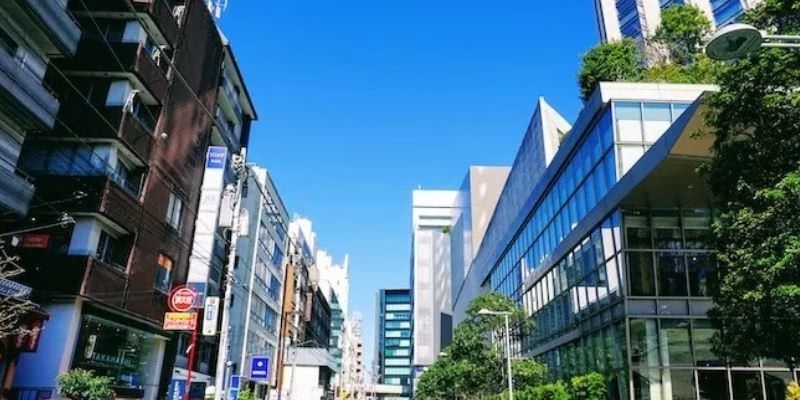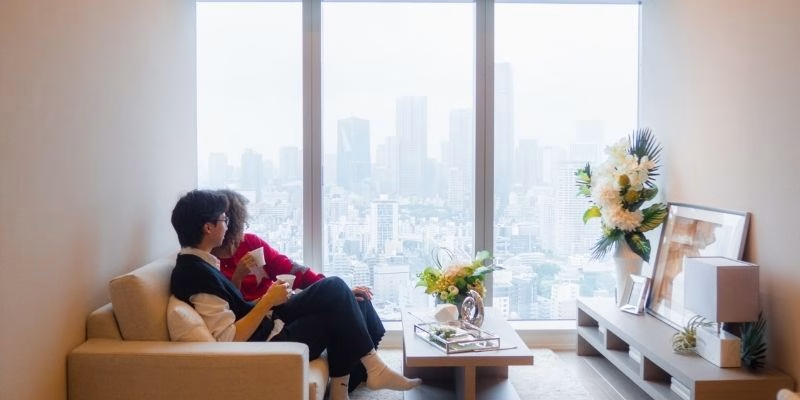Best Neighborhoods to Live in Tokyo, a globally recognized hub of finance, technology, and culture, presents a fascinating yet complex landscape for new residents. The decision regarding where to establish your base directly influences your quality of life. This guide is dedicated to providing definitive and actionable information on the Best Neighborhoods to Live in Tokyo. It streamlines your search for premium apartments for rent in Tokyo, Japan. Grasping the granular realities of each Tokyo district is fundamental to a successful residency. It helps in navigating the highly competitive market for rent in Tokyo. It also assists in securing a home that perfectly matches your professional and personal requirements.
Key Factors Defining Superior Apartments in Tokyo
Choosing the best apartment location in this sprawling metropolis is a strategic decision. The selection criteria transcend mere visual appeal or superficial factors. It also goes beyond immediate cost. The most crucial criteria relate to access, convenience, and lifestyle compatibility.
Commute and Unrivaled Centrality
In Tokyo, the quality of a neighborhood is often measured by its connection to the city’s rail network. Superior locations offer efficient, direct access to multiple train and subway lines, drastically cutting down on daily travel time.
- Shinjuku (新宿): This central node enables rapid travel through key lines. These include the JR Yamanote Line, the JR Chuo Line, and the Keio Line. Professionals based in areas like Otemachi or Shibuya often choose Shinjuku for its unmatched connectivity.
- Shinagawa (品川): Located in the south, Shinagawa is a Shinkansen (bullet train) station. It offers immediate access to the Tokaido Shinkansen. This service connects to Western Japan. Also, the JR Keihin-Tōhoku Line bolsters its status as a vital transit hub. The Keikyu Main Line remains essential for corporate executives and frequent travelers.
- Tokyo Station/Marunouchi (丸の内): This area is considered the gateway to the financial district. Residing near this historic station provides excellent links to subway lines, like the Marunouchi and Tozai lines. It also connects to the entire JR network. This is a significant advantage if proximity to the city’s commercial core is a priority.
Aligning Personal Style and District Vibe
Tokyo is a mosaic of micro-cultures. Each neighborhood possesses a unique character that attracts a specific demographic. Prospective tenants must align their personal style with the area’s ambiance.
Upscale, International, and Prestige Living
These areas attract expatriates and high-level professionals seeking a luxurious, integrated international environment. They are characterized by wide streets, upscale dining, and proximity to foreign institutions.
- Hiroo (広尾): Highly favored by the diplomatic community, Hiroo offers a quiet, refined atmosphere. It hosts several significant embassies, including those of the Czech Republic and Germany, and provides access to quality international schooling.
- Azabu-Juban (麻布十番): This area blends traditional Japanese town features with modern luxury. It is popular for its proximity to key international supermarkets, like National Azabu. It is also centrally located near Roppongi Hills.
- Shirokane (白金): Often referred to as “Platinum Street,” Shirokane is known for its high-end residential streets. It features fashionable boutiques, offering a quiet and sophisticated sanctuary away from the main commercial centers.
Trendy, Relaxed, and Bohemian Vibes
These districts appeal to younger residents, artists, and those seeking vibrant, walkable streets filled with independent shops and cafes.
- Nakameguro (中目黒): Famous for its picturesque canal lined with designer boutiques, Nakameguro offers a relaxed, stylish environment. It is a center for contemporary design and specialty coffee shops.
- Kichijoji (吉祥寺): Frequently voted as a top area for quality of life. Kichijoji successfully combines excellent shopping facilities with extensive green spaces. Most notably, it features Inokashira Park. This creates a desirable balance between urban access and nature.
- Shimokitazawa (下北沢): Known locally as “Shimokita,” this area is the epicenter of Tokyo’s bohemian and subcultural scene. It features narrow streets filled with vintage clothing stores. There are independent theaters and unique music venues. The area provides affordable rent in Tokyo for creative residents.
Residential Amenities and Family Friendliness
Local amenities, green spaces, and community infrastructure greatly affect the livability of a location. This is especially true for families considering apartments for rent in Tokyo Japan.
- Healthcare and Schools: Neighborhoods with easy access to high-quality international hospitals (e.g., St. Luke’s International Hospital) and respected international schools are preferred.
- Green Spaces: Parks are crucial for family life. Areas like Futako-Tamagawa, located along the Tama River, offer abundant green space and modern shopping centers, providing a suburban feel.
- Shopping and Services: Residents prioritize quick access to necessary services. Neighborhoods such as Sangenjaya provide large supermarkets, local bakeries, and essential community services. This promotes a convenient local lifestyle.

Detailed Analysis of Preferred Tokyo Neighborhoods
A deeper dive into specific locations reveals the true value and character that these areas offer prospective tenants when evaluating the Best Neighborhoods to Live in Tokyo.
High-Density and Professional Hubs
These areas are ideal if minimizing commute time and maximizing access to central business districts are paramount.
Ebisu (恵比寿)
Ebisu epitomizes sophisticated convenience. Home to the Yebisu Garden Place complex, it features upscale residential towers, high-end restaurants, and the Museum of Photography. Its location on the JR Yamanote Line makes it exceptionally convenient, offering rapid connection to Shibuya and Shinjuku. Apartments in Tokyo‘s Ebisu often command premium prices, reflecting the area’s high demand and refined reputation.
Nihonbashi (日本橋)
Steeped in history but thoroughly modern, Nihonbashi is the historical commercial center of Tokyo. It is known for its classic department stores, such as Mitsukoshi and Takashimaya, and is undergoing significant residential development. It offers a quieter and more executive living experience. Residents have direct access to multiple subway lines, including the Ginza and Tozai lines.
Family-Friendly and Suburban Havens
For those seeking more space, tranquility, and a community focus, the residential suburbs offer a high-quality alternative to central Tokyo.
Musashi-Kosugi (武蔵小杉)
Located just outside the 23 wards in Kawasaki (Kanagawa Prefecture), Musashi-Kosugi has rapidly evolved into a major residential hub. Its appeal lies in the proliferation of new, high-rise condominiums and modern amenities. There are excellent transport links via the JR Nambu, Yokosuka, and Tokyu Toyoko lines. It is highly valued by families for its modern infrastructure and strong local community resources.
Den-en-chofu (田園調布)
This area is renowned for its planned residential design, featuring spacious homes, tree-lined avenues, and strictly controlled architecture. Den-en-chofu offers a tranquil, exclusive suburban lifestyle, popular among affluent Japanese families and expatriates seeking privacy and large living spaces. Its primary access is via the Tokyu Toyoko Line.

Deconstructing the Intricacies of Tokyo’s Residential Leasing Market
Securing apartments for rent in Tokyo Japan involves mandatory steps and fees that differ significantly from Western real estate practices. Understanding these financial and legal requirements is crucial for all foreign tenants.
The Mandatory Upfront Capital Investment
The move-in process requires substantial upfront capital. It often demands a budget equivalent to four to six months of rent in Tokyo. These mandatory initial costs are non-negotiable in most traditional rentals.
- Key Money (礼金 – Reikin): This is a non-refundable payment. Historically, it was a gift to the landlord. It usually amounts to one or two months’ rent. Many newer, foreign-friendly listings waive this fee.
- Security Deposit (敷金 – Shikikin): You typically pay one or two months’ rent as a deposit. The landlord holds this deposit to cover potential damages or cleaning costs when you leave. The landlord refunds the amount based on the property’s condition.
- Agency Fee (仲介手数料 – Chūkai Tesūryō): This commission is paid to the real estate agent. It is standard at one month’s rent plus consumption tax.
The Mandate of Guarantor Requirements
Japanese landlords require a reliable guarantor (連帯保証人 – Rentai Hoshōnin). For most international residents, securing a personal guarantor is impossible, mandating the use of a specialized Guarantor Company. Guarantor companies levy a mandatory initial service charge, typically equivalent to a percentage of the first month’s rent. This fee is usually 50% to 100% of the first month’s rent. They also often include an annual renewal fee. This service is a prerequisite for most tenancy agreements, ensuring that landlords receive timely payments if the tenant defaults.
Partnering with Arealty: Your Expert for Apartments for Rent in Tokyo Japan
Best Neighborhoods to Live in Tokyo are highly sought after, yet the Japanese rental ecosystem remains complex. It includes intricate paperwork, language barriers, and the need for guarantors. These factors make professional, specialized assistance indispensable. Arealty is the definitive expert in cross-cultural real estate, focusing exclusively on connecting international residents with optimal apartments in Tokyo, ensuring clients secure homes in the city’s most desirable districts.
We mitigate the financial and procedural hurdles commonly faced by foreigners. Our specialized services include bilingual property consultation. We offer comprehensive lease negotiation to eliminate or reduce exorbitant Key Money payments. Additionally, we provide seamless coordination with guarantor companies. We possess an exclusive portfolio of listings. These listings are specifically verified and approved for foreign occupancy. This simplifies your search for the right rent in Tokyo.
Arealty is committed to translating the complexity of the Japanese rental system into a transparent, efficient process. Every client gains access to the best available properties. These properties align with their visa status and budget. We provide full support from initial viewing to contract signing.
Secure Your Ideal Tokyo Residence Today
- Exclusive Listings: Access properties that are not typically available on public Japanese platforms.
- Bilingual Negotiation: Ensure clear communication and advantageous contract terms.
- End-to-End Support: Receive guidance through initial fees, guarantor setup, and utility activation.
Do not allow the complexities of the Japanese rental market to delay your move. Contact Arealty today for a personalized consultation and secure your perfect apartment for rent in Tokyo Japan!

Legal and Practical Considerations for Moving to Tokyo
Successful residency in Tokyo requires anticipating several factors beyond simply choosing the Best Neighborhoods to Live in Tokyo. You must consider not only where you will live, but you should also understand how the city operates on a practical level.
Lease Structure and Renewal
Typical residential leases in Japan are structured for two years. At the end of this term, tenants usually need to pay a non-refundable Renewal Fee (更新料 – Kōshinryō). This fee is generally equivalent to one month’s rent. This is another significant financial element to factor into the long-term cost of rent in Tokyo. Tenants must plan for this recurring expense if they intend to reside long-term in the same property.
Utility and Visa Requirements
Tenancy is contingent upon valid visa status (e.g., Engineer/Specialist in Humanities/International Services, Intra-company Transferee, or Spouse of Japanese National). Furthermore, setting up utilities (electricity, gas, water) must be done immediately upon moving in. Gas hookup, in particular, often requires an appointment with a utility company technician. You can easily manage this detail with local assistance to activate the supply.
Tokyo’s Low Crime Rate
Tokyo maintains its status as one of the world’s safest major metropolises, a critical advantage for all residents. This is a profound benefit of life in the metropolis. Neighborhoods across the board offer an exceptional level of personal security. These range from the bustling, high-density areas of Shinjuku to the quiet suburbs of Den-en-chofu. This significantly contributes to the high quality of life for all residents.
Conclusion
Choosing the best neighborhoods to live in Tokyo is the critical first step to a successful relocation. The market for apartments in Tokyo is highly competitive. Securing the right property requires a clear strategy. You need to make a decision. Will you maximize value for rent in Tokyo or look for luxury apartments for rent in Tokyo Japan? Success depends on aligning your needs (commute, budget, lifestyle) with the neighborhood’s unique offerings. By understanding the complex financial and legal requirements of the Japanese rental system, you are positioned for a smooth transition. To navigate this complexity, professional local guidance is crucial. It ensures your ideal apartment is secured without undue delay. Avoid excessive fees with their help.






Leave a Reply